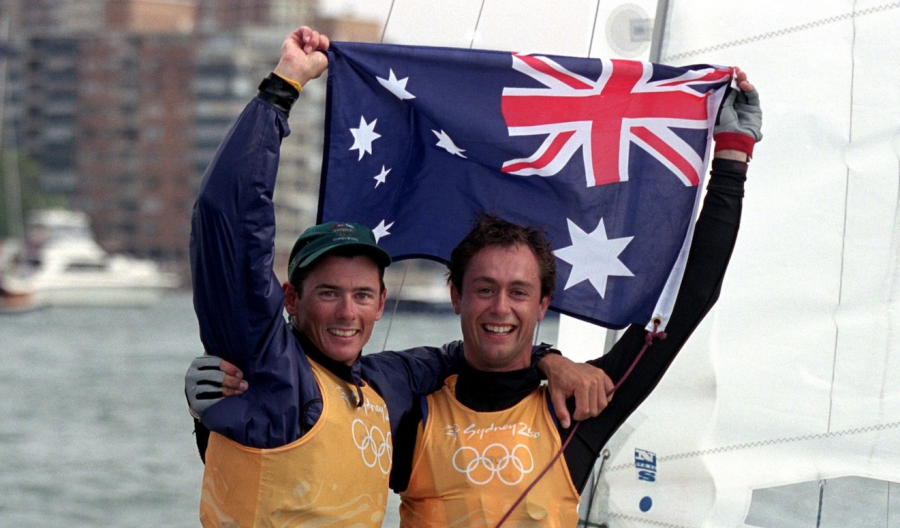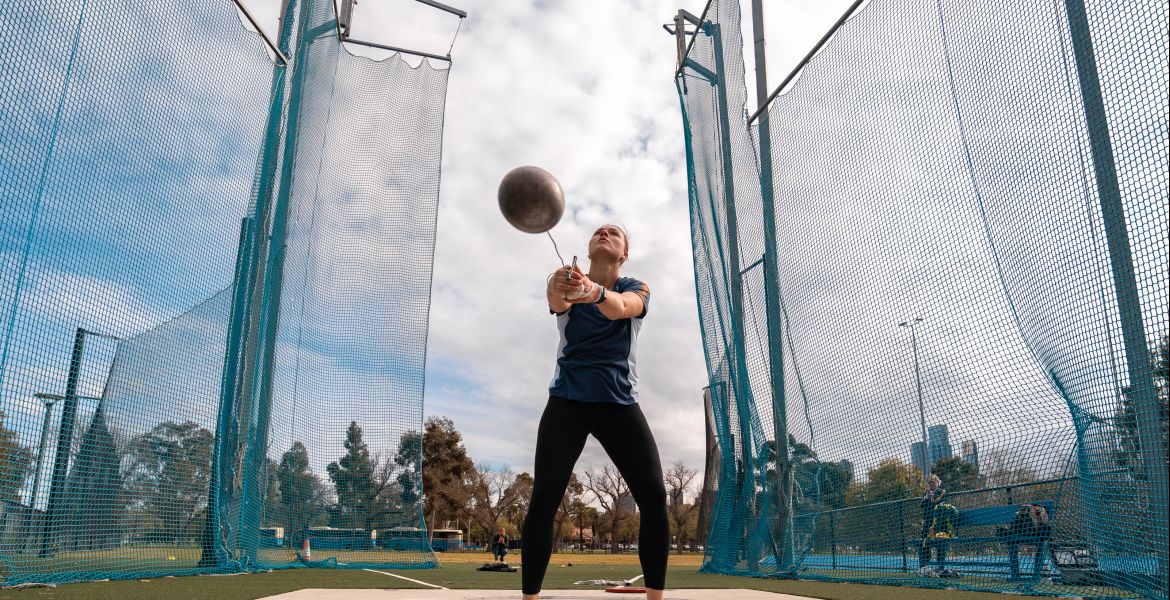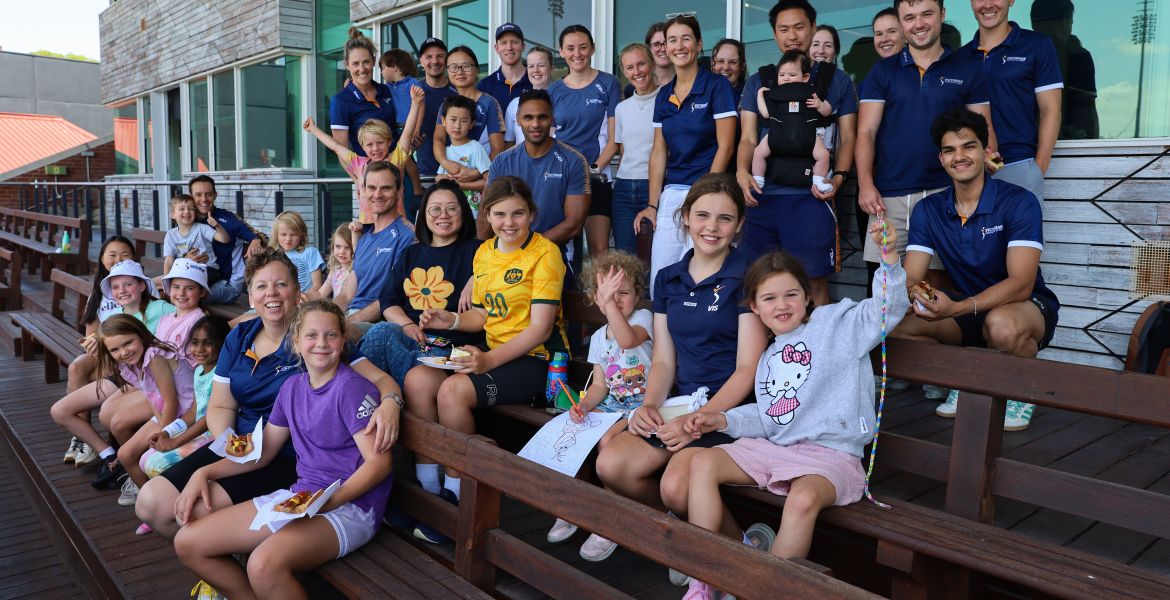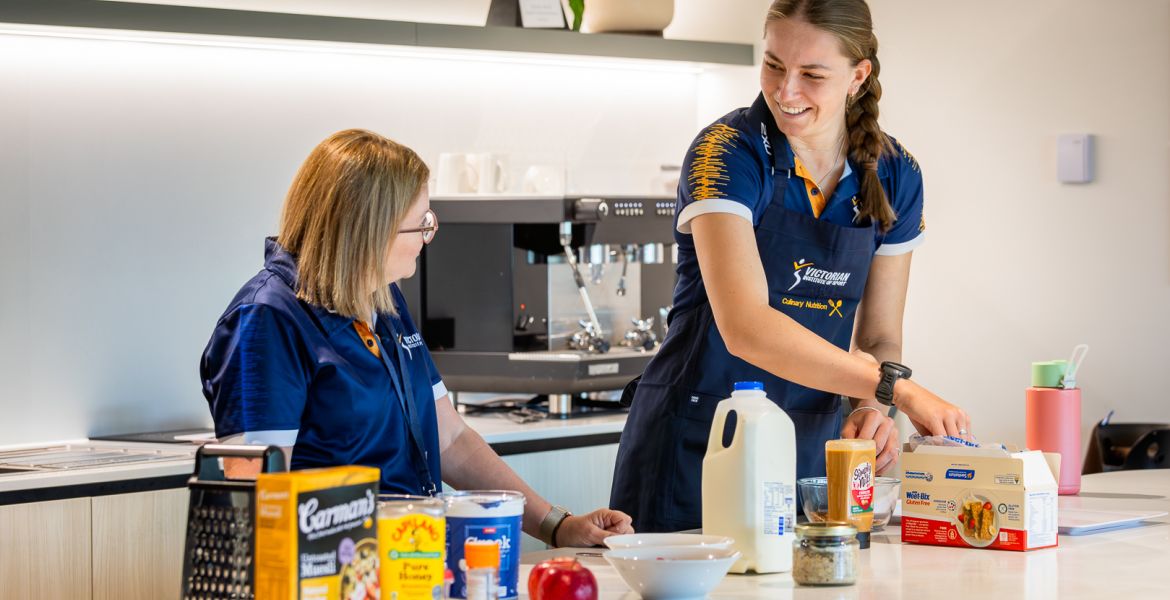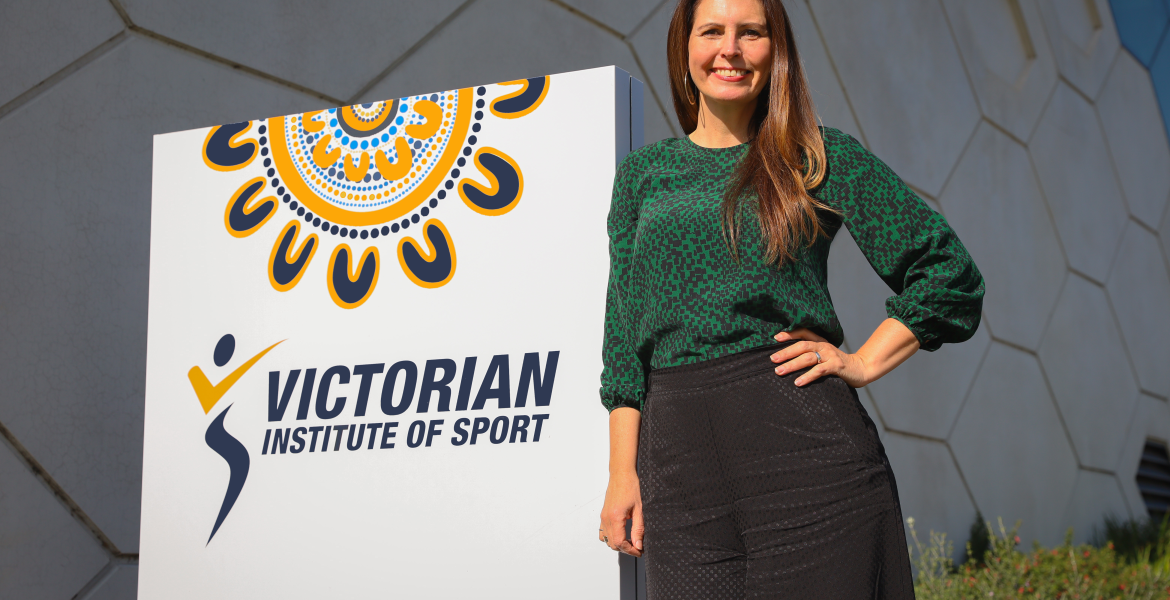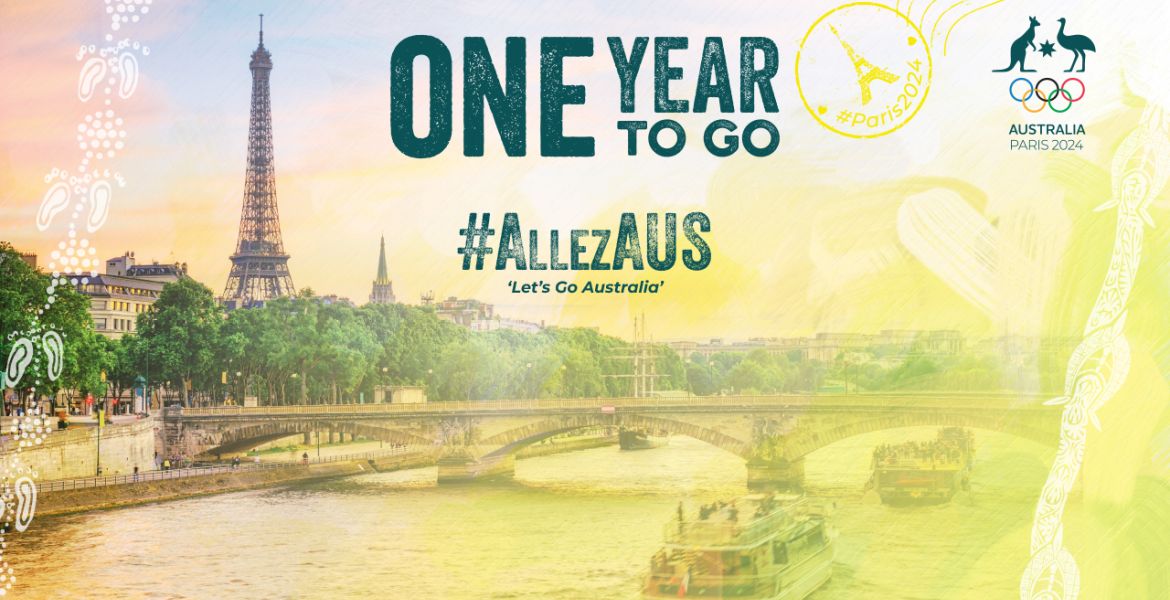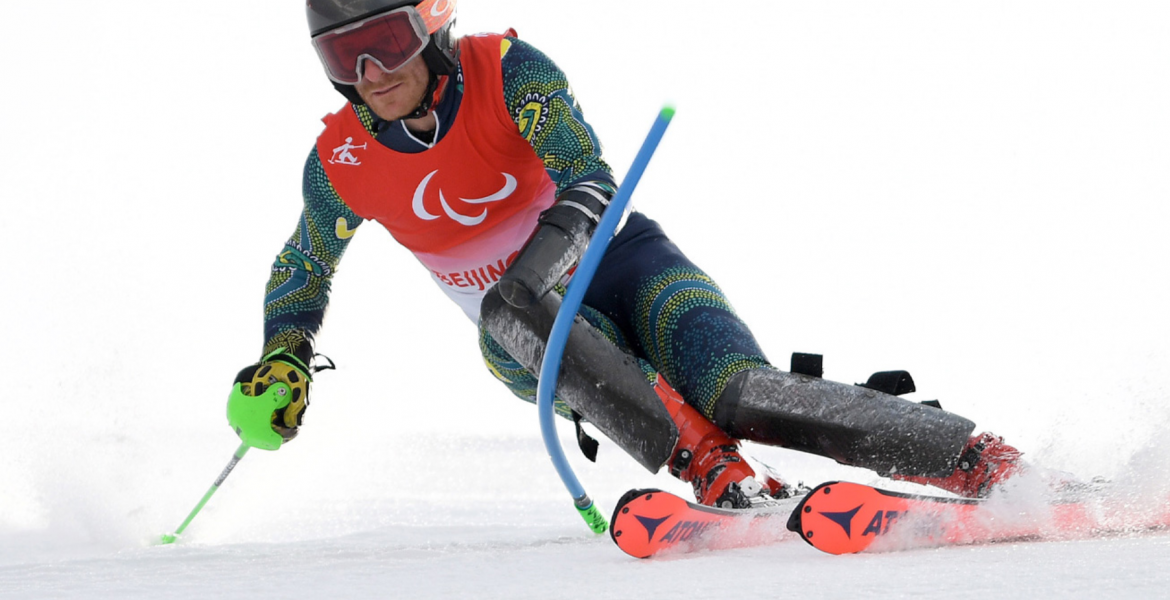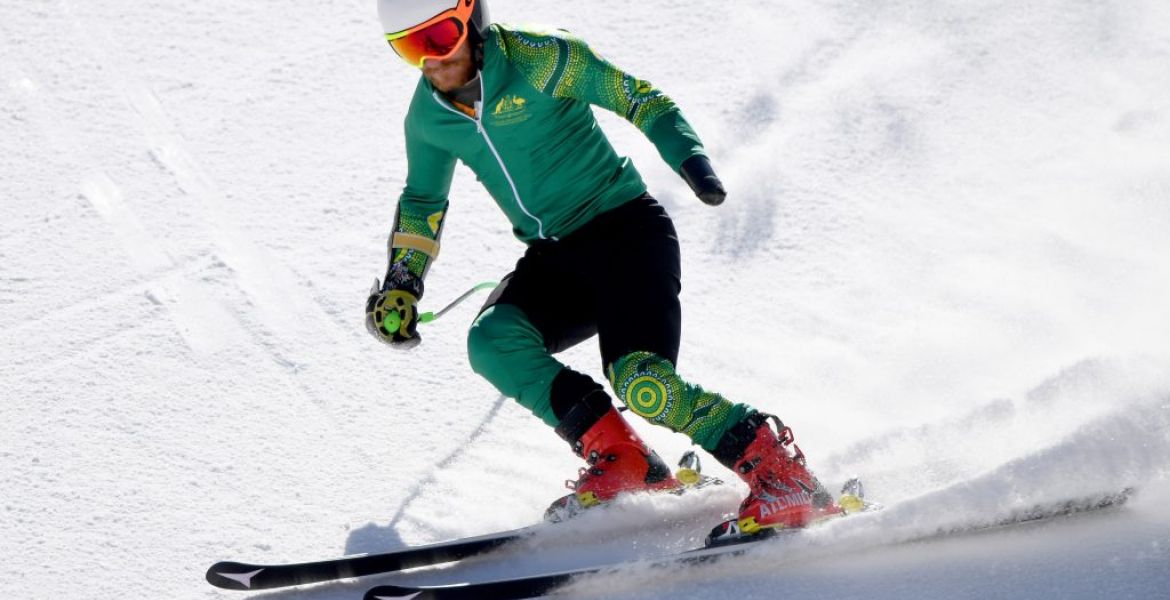Written by Dr Frank Pyke (VIS ED 1990 – 2006) for VIS Pinnacle Newsletter in 2000.
Success in Sydney
What a wonderful Olympic Games! Sydney was a marvellous host, Australia won more than its share of the medals and, under the weight of enormous public expectation, Catherine Freeman became an Olympic champion.
Sydney Harbour erupted on Day 13 of the Olympic Games when Victorian sailors Tom King and Mark Turnbull turned a lifelong dream into reality. With thousands of spectators cheering them on, the sailors rallied under the immense public pressure and high expectations to go on and successfully win gold in the Men’s 470 class.
On the final four days of the Olympics, the VIS Taekwondo athletes stole the limelight with stunning results. Not bad for a sport making its first attempt at Olympic glory. Lauren Burns and Daniel Trenton won the sports first ever gold and silver medals at an Olympic Games.
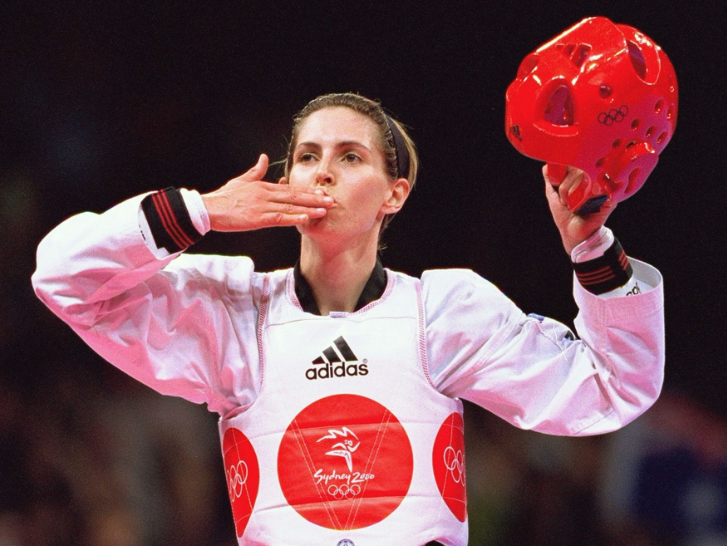
Image: Lauren Burns celebrates gold in the Women's 49kg Taekwondo contest with a kiss to the home crowd.
Australia’s tally of 58 medals from 20 different sports was quite remarkable and on a per capita basis we lead the world. We have come a long way since winning only five medals, none gold, in Montreal in 1976.
Much of this success must be attributed to the talent and commitment of our best athletes and their coaches as well as the high quality support that they receive from the network of sports institutes and academies throughout the country.
Since the establishment of the VIS in 1990 the number of Victorian athletes who have become Olympic gold medallists had grown from 12 to 32. During this time the contribution of Victorian athletes to the national medal tally has increased from 12 medals (3 gold) in 1992 to 18 (3 gold) in 1996 and now 28 (8 gold) in 2000. Clearly the VIS has made a difference.
VIS Triumphs at the Paralympics
Since its inception the VIS has always had a program for athletes with disabilities for which is receives financial support from VicHealth. The program encourages the integration of athletes with disabilities with those in mainstream sport. It was the first of its type in the world and has had a significant contribution to Australia’s great performances at the last three Paralympic Games.
At the Sydney Paralympics there were 32 VIS scholarship holders competing. This represented 14% of the team. Between them they contributed to winning 39 medals (26% of the total), including 21 gold medals (33% of the total). Furthermore, of the 32 VIS athletes who went to the Games, 19 actually won medals, a remarkable strike rate by any standard of comparison.
Prominent among these athletes were several multiple gold medal winners including individual track athletes, Tim Sullivan, Lisa McIntosh and Greg Smith and relay runners Tim Matthews and Kieran Ault-Connell.
Their performances automatically place their names alongside those of our greatest VIS Paralympic champions of the past, such as weightlifter Brian McNicholl and swimmer Anne Currie.
The results reflect the outstanding capabilities of VIS athletes who participated in the Paralympics. It shows what can be achieved when athletes with disabilities train alongside able-bodied athletes and receive high-quality support services whether it be coaching, strength and conditioning, nutrition, science, medicine or career development.
In their own unique way Olympic and Paralympic athletes inspire each other. Triple Paralympic gold medallist in the 100m, 200m and 400m, Lisa McIntosh, who suffers from cerebral palsy, finds inspiration from Cathy Freeman. Cathy, whose sister had the same condition, was delighted by what Lisa had achieved and made a special effort to meet with her after the Games.
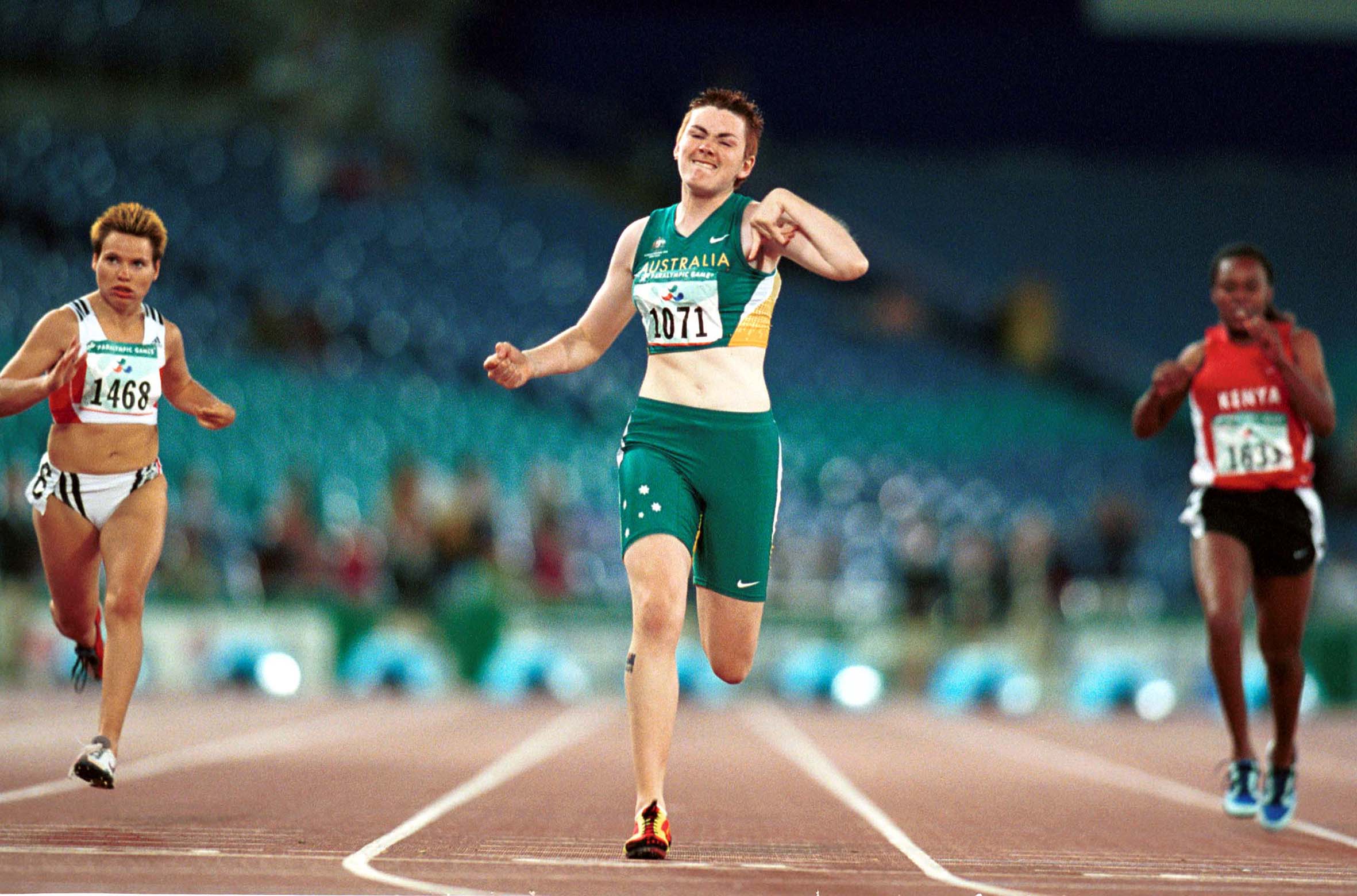
Image: Action shot of Australian track athlete Lisa McIntosh during the 100m at the 2000 Sydney Paralympic Games
Every track athlete in Victoria is in awe of the lightning speed of arm amputee, Tim Matthews, who this year won a heat of the Stawell Gift and regularly out-sprinted some of the able-bodied athletes at Olympic Park.
From within the VIS family, Olympians and Paralympians are treated alike. Tom King, Mark Turnbull and Michael McLean are simply gold medal sailors. Michael Klim and Brett Reid are gold medals swimmers and Cathy Freeman and Lise McIntosh are gold medal runners. They know and respect each other for their talent and commitment and for what they have achieved.
Stay up to date with our 'Remembering VIS at the Games' campaign here.
Written by Dr Frank Pyke (VIS ED 1990 – 2006) for VIS Pinnacle Newsletter in 2000.
Dr Frank Pyke was the inaugural Executive Director of the Victorian Institute of Sport (VIS) in 1990, a position which he held until 2006. During his tenure at the VIS he developed a number of programs and was respected by so many athletes and staff. In 2011 Pyke passed away several months after he was diagnosed with motor neurone disease.
In his honour, we now present the ‘Frank Pyke Achievement Award’ at our annual Award of Excellence evening, presented to an athlete who had a successful sporting career as well as making a significant contribution to the VIS and their sport, and most importantly been successful in their career path. The Award reflects the VIS motto, ‘Success in Sport and Life’ over the span of the athlete’s career.

